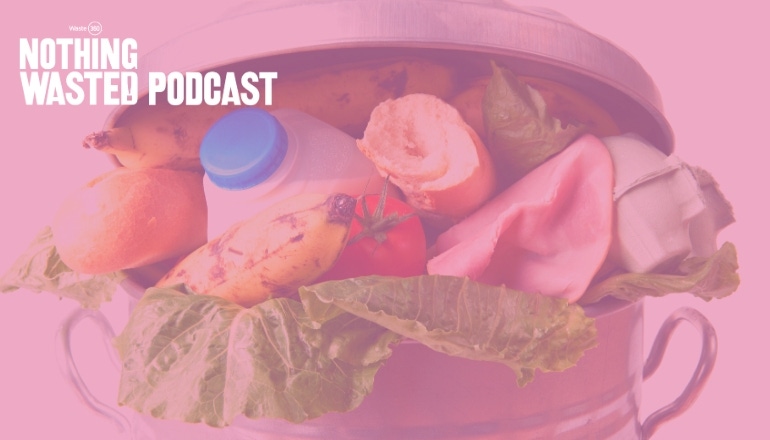Industry Visionaries Discuss Solutions to Food Waste & Wasted Food
Episode 34: In honor of Thanksgiving, we bring you a dynamic food waste session from WasteExpo 2019.

In honor of Thanksgiving week, the latest episode of our NothingWasted! Podcast brings you a dynamic session from WasteExpo: “Industry Visionaries Discuss Solutions to Food Waste & Wasted Food.”
The discussion features: Darby Hoover, senior resource specialist for Natural Resources Defense Council (NRDC); Dr. Stephen Hamilton, professor of economics at California Polytechnic State University; and Jonathan Deutsch, Ph.D., professor for the Center for Food and Hospitality Management and Department of Nutrition Sciences at Drexel University.
We hope you’ll enjoy this smorgasbord of insights …
Darby Hoover: If you’re trying to reduce what’s discarded in the first place, or separate and appropriately direct discards, it’s a lot easier if you’re thinking of those materials as separate resources that have unique characteristics and value. On NRDC’s food waste team, we typically describe our approach as, first: rethinking policies, systems and concepts that might impede progress or provide opportunities. Then, preventing food from going to waste; rescuing surplus food (because you don’t want to say you’re rescuing food waste or imply that you’re feeding garbage to poor people); and recycling food scraps that can’t be dealt with through these higher strategies for whatever reason. But it’s still unwieldy when you’re talking about so many different resources, characteristics and optimal pathways. We also have to start talking about consumption and how to think about that sustainably.
Stephen Hamilton: It�’s helpful to think about where food waste comes from and the different strategies and policies that can apply to each source. I want to talk a little more about the post-consumer household waste that is coming from homes. If you want to go after this problem, the best way to do that is tax the food waste. This is not practical, but conceptually, we’d like to put a price on it: “This is going to cost you money now if you throw that food into conventional waste instead of a compost bin.” But there are two problems: we lack measurement tools, and there is an enforcement problem. So, what can we do?
JonathanDeutsch: We’re not just moving truckloads … food is emotional, food is memory, food is so much more. There’s a lot of food that’s perfectly good and may be being donated but may not be getting eaten. So, we developed something called the Food System Sensitive Model, which says, “Remember this is food, and let’s look at each ingredient and what can be done with it—and also considering the environment.”
Listen to the full episode below and more episodes here.
About the Author(s)
You May Also Like




